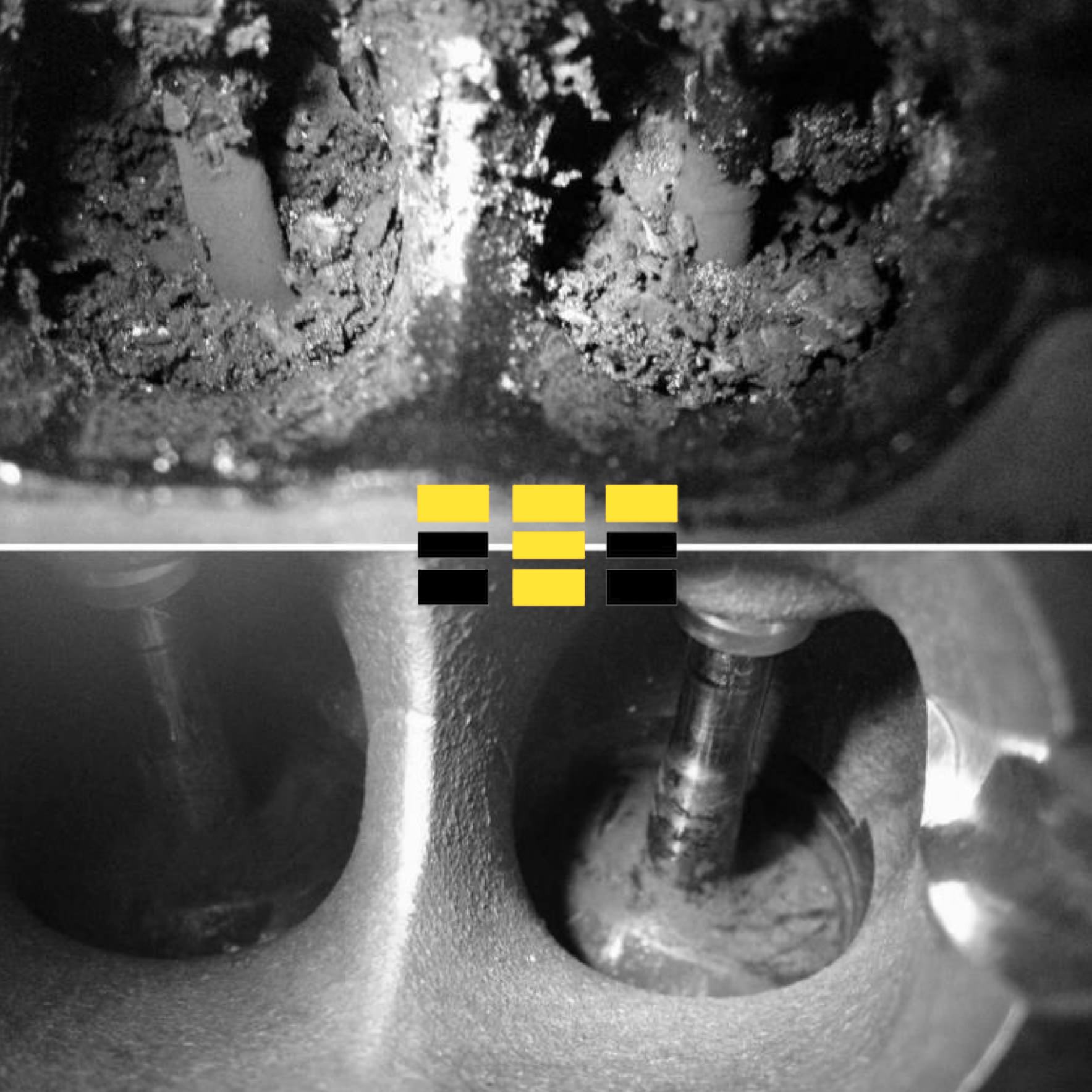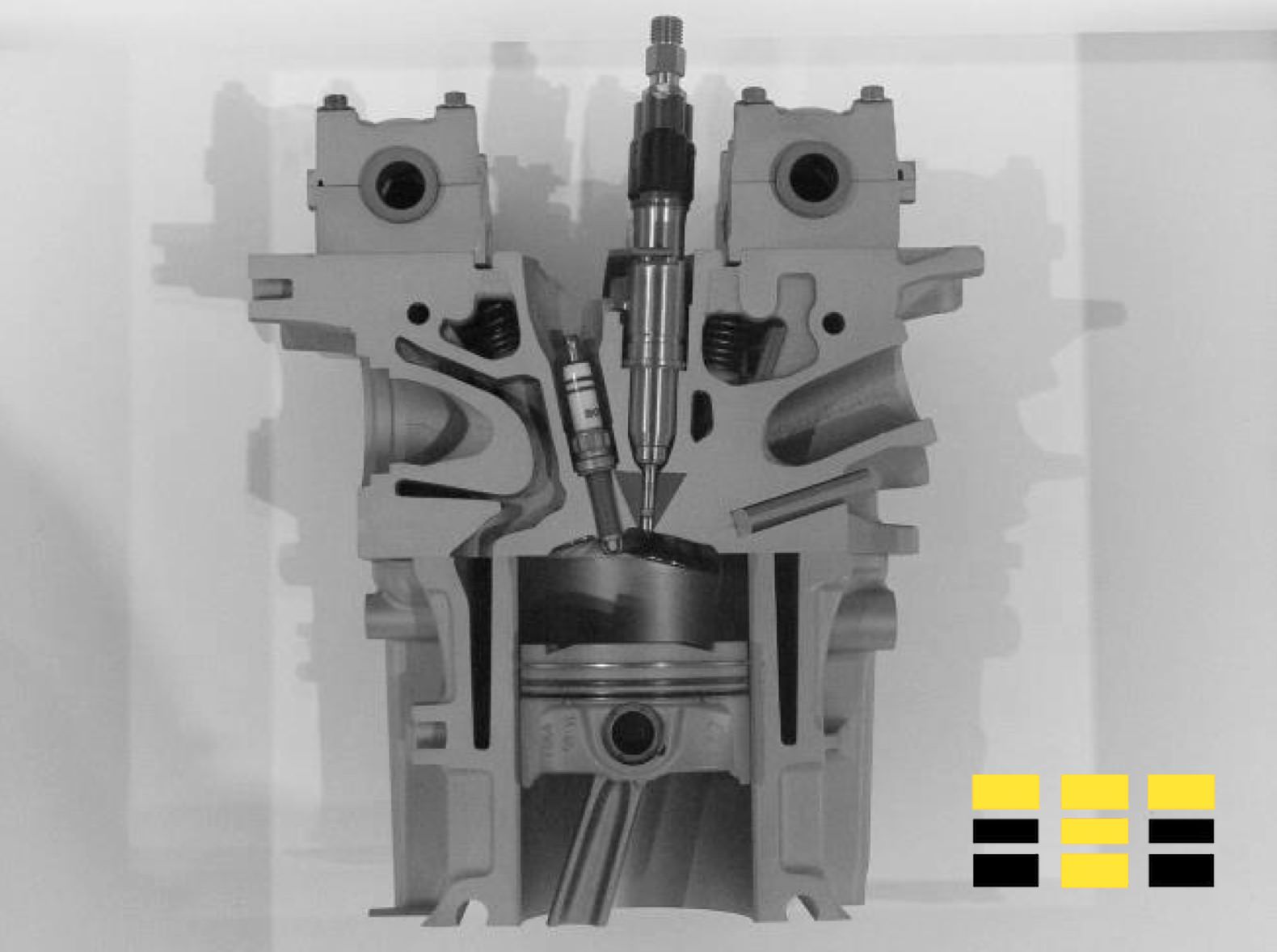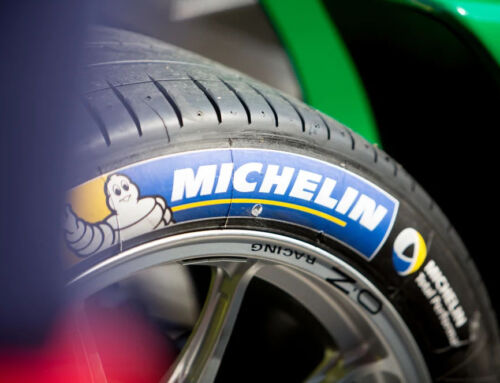Tunerworks ServiceBMW Engine Plaque |
| |
Just as your teeth need regular cleaning at the Dentist’s office to remove plaque, BMW’s direct injection engines need regular inspection and cleaning of the intake valves. |

Beginning in 2007 with the BMW “N54” twin-turbo 6- cylinder engine, BMW adopted Direct Injection fuel injection. The N54 engine won many awards and soon became a template for many BMW engines to come. Direct Injection also became standard in most BMW engines, mostly because of the benefits related to fuel efficiency and power.
However, it has one major drawback, carbon build-up.
Just as your teeth need regular cleaning at the Dentist’s office to remove plaque, BMW’s direct injection engines need regular inspection and cleaning of the intake valves.
The picture above has not been altered in any way and shows what can happen when this inspection and cleaning is neglected.
To understand how Direct Injection allows carbon to build up on intake valves, see the picture at the right. The injector (located to the right of the spark plug) sprays fuel directly into the cylinder. In older style “Port Injection,” the injector sprays fuel before the intake valve, essentially washing the intake valve and keeping it clean.
Direct Injection injectors do not do this—sprayed fuel bypasses the intake valves altogether and leaves them exposed to carbon build-up over time. Intake valves quickly begin to choke your engine and prevent it from getting adequate air.
Traditional fuel additives and chemical cleaners sprayed into the intake tract are no match for this plaque-like buildup. The only reliable solution is old-school elbow grease and carefully picking and scraping away the carbon off the intake valves, just like at your last dental visit!
We are seeing more and more vehicles ranging in mileage from 80k to 200k with carbon-buildup related symptoms such as lack of performance, misfires throughout the rev range, low boost engine codes, and more. We recommend an inspection for carbon buildup to be performed at the same time as your spark plug replacement service, every 50,000 km.
Carbon cleaning service includes:
- Removing intake manifold
- Scraping all carbon build up off intake valves
- Chemical cleaning of valve units after thick carbon build up is removed
- Reinstalling intake manifold using new OEM supplied gaskets
Send us a message or give us a call to learn more or schedule a carbon cleaning service for your vehicle.






